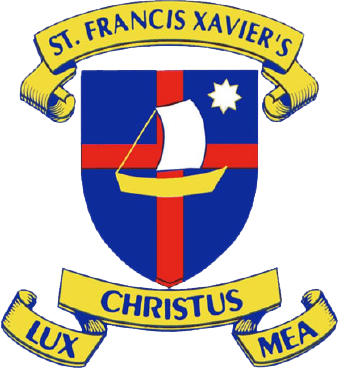Life Skills
Stage 6 Life Skills recognises the principle that post-compulsory years of schooling can cater, in a meaningful manner, for all students that choose to participate.
The Stage 6 Life Skills courses provide students with the opportunity to develop their knowledge, understanding, skills, values and attitudes in a range of environments. Students and stakeholders participate in a collaborative curriculum planning process that ensures learning and individual needs are met.
This is an alternate program of study for students with special needs. Applicants for this program are required to meet with the Learning Support Coordinator to individualise a transition plan into the College.
Courses Offered
- English
- Mathematics
- HSIE
- Technology
- Creative Arts
- Work & Community
Contact for all Life Skills Courses
Learning Support Coordinator: Mrs Melissa Chellis
Email: melissa.chellis@mn.catholic.edu.au
Introduction
A Life Skills Syllabus - Stage 6 is directed towards students for whom a regular course of study is inappropriate. The subjects presented within Life Skills consist of NSW Education Standards Authority (NESA) developed Life Skills courses. Students will normally enter a Stage 6 Life Skills Program at Year 11 and complete it at the end of Year 12. Students who complete both the Year 11 course of study as well as the Year 12 course will receive a full HSC testamur together with the related Record of Achievement. Students who complete the Year 11 course will only receive NESA’s Record of Achievement (ROSA).
For Whom is the Program Intended?
Courses followed within the Life Skills Program are designed with the special learning needs of students in mind. NESA expects that, in most instances, enrolled students will be those who experience an intellectual disability. Life Skills maintain a strong focus on the development of vocational and independent living skills.
Purpose of the Life Skills Program
The purpose of Life Skills is to provide a relevant and functional program of transition from the school context to the post-school environment. In support of this, students may be expected to undertake Work Experience each year. Where appropriate, opportunities for TAFE study are available. Students will combine Life Skills subjects with a selection of mainstream subjects. Close consultation with the College is required when choosing mainstream courses.
Program Pre-Requisites
NESA expects that, in most instances, prospective students would have completed at least four Life Skills subjects during a Stage 5 course of study. Consideration for enrolment in Life Skills can also be given under special circumstances. An example of this is where a student has experienced significant difficulties in one or more Stage 5 subjects. Under NESA guidelines, the student may then apply to enrol in a Life Skills Course for that subject(s) only and to follow a regular course of study in his or her remaining subjects. Enrolment is approved in consultation with College staff after an interview and psychological testing process.
NB: Life Skills Subjects
Each of these are 2 Unit Board Developed Courses
- Creative Arts Life Skills
- English Life Skills
- HSIE Life Skills
- Mathematics Life Skills
- Technology Life Skills
- Work and the Community Life Skills
Whether the courses will run is dependent on student numbers. Students who have selected a Life Skill HSIE Course will cover the compulsory Catholic component of study required in Catholic Schools.
Enrolment
Enrolment in Life Skills subjects is made through application to the College. Parents will be individually notified of acceptance into Life Skills. A significant feature of Life Skills is the student’s Individual Planning Process. This process is based around a series of meetings, held at strategic points throughout both years of the program and involving key stakeholders in the student’s education. The student plays an important role in this process and is encouraged to take an active part in all decisions made. The first of these planning meetings usually occurs between May and July of the year prior to enrolment in the program. Prospective students are also invited and encouraged to visit the College during Term 4 prior to commencing as a component of their transition to the Senior College.
Assessment
Students undertaking Life Skills subjects will be assessed internally and in accordance with the assessment guidelines set by the NESA. The assessment process is built around achievement of outcomes set within the student’s Individual Planning Process. Students will satisfactorily complete a course of study if they apply themselves diligently and with sustained effort.
Costs
Subject Costs are included in the College Resource Fee.
Other Costs: Students may need to purchase equipment or clothing for some work experience. Students will also be required to hold Work Experience Insurance. Regular community visits are an important part of this program and may incur a small cost from time to time, (eg: bus fare). For any extended excursions an additional cost will be applicable dependent upon transport and admission fees.
